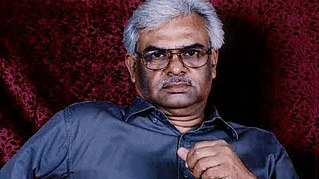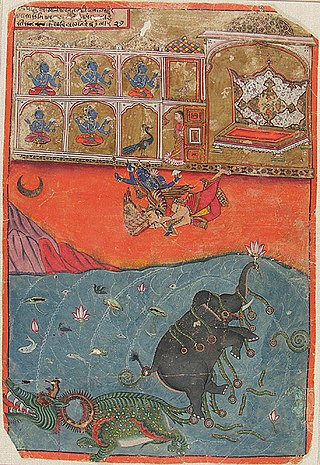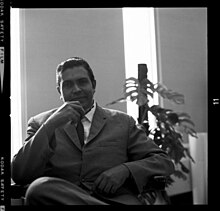
Philip Michael Ondaatje is a Sri Lankan-born Canadian poet, fiction writer and essayist.

George Elliott Clarke, is a Canadian poet, playwright and literary critic who served as the Poet Laureate of Toronto from 2012 to 2015, and as the 2016–2017 Canadian Parliamentary Poet Laureate. His work is known for its use of a wide range of literary and artistic traditions, as well as its physicality and political substance. One of Canada's most illustrious poets, Clarke is also known for chronicling the experience and history of the Black Canadian communities of Nova Scotia and New Brunswick, creating a cultural geography that he has coined "Africadia."

Irving Peter Layton, OC was a Romanian-born Canadian poet. He was known for his "tell it like it is" style which won him a wide following but also made him enemies. As T. Jacobs notes in his biography (2001), Layton fought Puritanism throughout his life:
Layton's work had provided the bolt of lightning that was needed to split open the thin skin of conservatism and complacency in the poetry scene of the preceding century, allowing modern poetry to expose previously unseen richness and depth.

Patricia Kathleen Page, was a Canadian poet, though the citation as she was inducted as a Fellow of the Royal Society of Canada reads "poet, novelist, script writer, playwright, essayist, journalist, librettist, teacher and artist." She was the author of more than 30 published books that include poetry, fiction, travel diaries, essays, children's books, and an autobiography.

Paradise Regained is a poem by English poet John Milton, first published in 1671. The volume in which it appeared also contained the poet's closet drama Samson Agonistes. Paradise Regained is connected by name to his earlier and more famous epic poem Paradise Lost, with which it shares similar theological themes; indeed, its title, its use of blank verse, and its progression through Christian history recall the earlier work. However, this effort deals primarily with the temptation of Christ as recounted in the Gospel of Luke.
Earle Alfred Birney was a Canadian poet and novelist, who twice won the Governor General's Award, Canada's top literary honour, for his poetry.

Abraham Moses Klein was a Canadian poet, journalist, novelist, short story writer and lawyer. He has been called "one of Canada's greatest poets and a leading figure in Jewish-Canadian culture."
Ralph Barker Gustafson, CM was a Canadian poet and professor at Bishop's University.
Raymond Holmes Souster was a Canadian poet whose writing career spanned over 70 years. More than 50 volumes of his own poetry were published during his lifetime, and he edited or co-edited a dozen volumes of poetry by others. A resident of Toronto all of his life, he has been called that city's "most loved poet".
Pier Giorgio Di Cicco was an Italian-Canadian poet. In 2005, he became the second Poet Laureate of Toronto.

Leah Lakshmi Piepzna-Samarasinha is a Canadian-American poet, writer, educator and social activist. Their writing and performance art focuses on documenting the stories of queer and trans people of color, abuse survivors, mixed-race people and diasporic South Asians and Sri Lankans. A central concern of their work is the interconnection of systems of colonialism, abuse and violence. They are also a writer and organizer within the disability justice movement.
Thomas Ethan Wayman is a Canadian author.
Sri Lankan Canadians refers to people from Sri Lanka who have arrived and settled in Canada. Among these immigrants include members from the Tamil,Moor, Malay, Sinhalese and Burgher ethnicities. According to the 2021 census there are 136,240 Sri Lankan-born persons in Canada.

Indran Amirthanayagam is a Sri Lankan-American poet-diplomat, essayist and translator in English, Spanish, French, Portuguese and Haitian Creole.

Rajiva Wijesinha, MA, DPhil is a Sri Lankan writer in English, distinguished for his political analysis as well as creative and critical work. An academic by profession for much of his working career, he was most recently Senior Professor of Languages at the University of Sabaragamuwa, Sri Lanka.

In Our Translated World: Contemporary Global Tamil Poetry is a bilingual anthology of Tamil poetry. This collection contains poems by 78 Tamils, of whom 21 are women. The authors are from many countries, including India, Sri Lanka, Malaysia, Singapore, Canada, Australia and Europe. Similarly, their backgrounds and experiences are diverse, described as being "women and men, young and old, Hindu, Muslim and Christian".

Professor Chelvanayakam Kanaganayakam was a Tamil Canadian translator, author and academic.
Kenneth Sherman is a Canadian poet and essayist. He has written ten books of poetry. His 2017 memoir, Wait Time, was nominated for the RBC Taylor Prize for non-fiction.

Varathalingam Rathnathurai is a poet, songwriter and sculptor who served as the head of Arts and Culture Division of the Liberation Tigers of Tamil Eelam (LTTE), a separatist Tamil militant organisation in Sri Lanka. He is a known personality among Eelam Tamils and has written many revolutionary songs and poetry for the LTTE. He disappeared after the end of the Sri Lankan Civil War in 2009.

The Ciriya Tirumatal is a Tamil Hindu work of literature written by Tirumangai Alvar, one of the twelve Alvars of Sri Vaishnavism. The work is a part of the compendium of hymns called the Nalayira Divya Prabandham. In the forty hymns of this work, the author expresses his devotion and love to the preserver deity, Vishnu, and also lists twenty-seven sites he would like to visit to venerate the deity.













